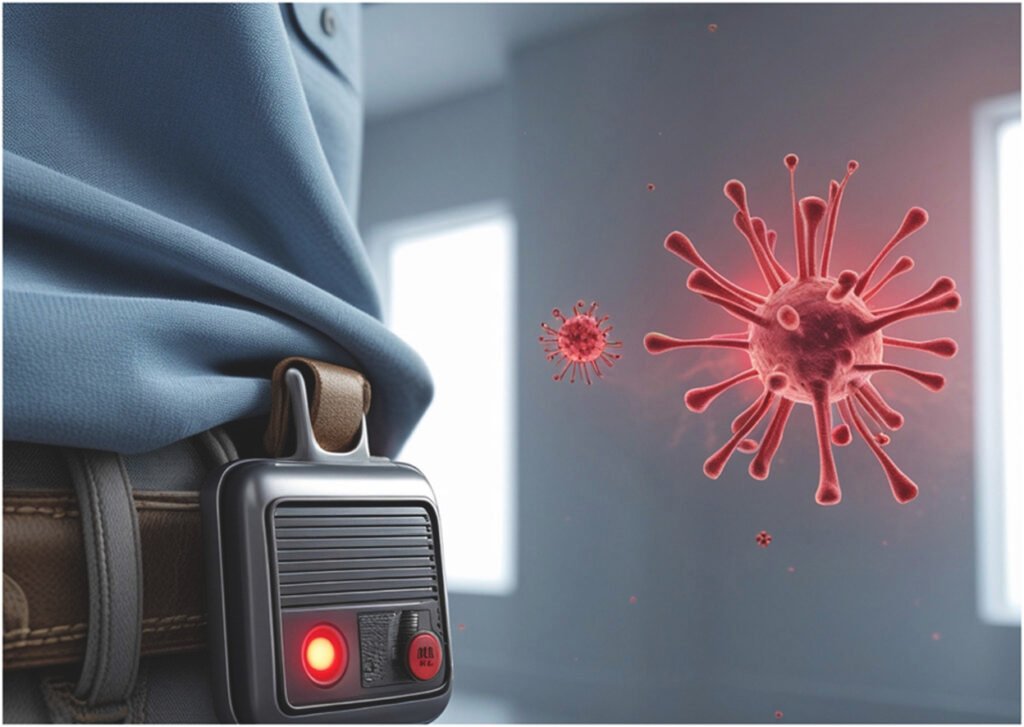Researchers from Universitat Politècnica de València (UPV) and Universitat de València (UV) have developed a compact biosensor capable of detecting airborne viruses in real time, offering a fast, low-cost alternative to traditional lab-based methods. This innovation could significantly improve public health monitoring in hospitals, schools, transportation hubs, and other indoor environments.
The biosensor works without chemical markers or additional reagents, which sets it apart from existing systems that often require bulky equipment and complex sample preparation. Conventional air sampling methods typically involve collecting pathogens on Petri dishes or in liquid solutions, followed by laboratory analysis that can take days. In contrast, the new sensor provides immediate feedback, allowing for faster decision-making and preventive action.
The team chose the M13 virus as a proof of concept due to its ease of handling. Their results demonstrate that the sensor can detect this virus directly from the air without any added reagents. The researchers believe the technology can be adapted to identify a wide range of pathogens, including hospital superbugs, avian flu, and plant-based viruses that pose risks to both human health and agriculture.
The biosensor’s design integrates electronics and chemistry in a streamlined format. Over the past two years, the team built the system from scratch, focusing on miniaturization, sensitivity, and ease of use. Because it does not rely on external chemicals or lab infrastructure, the device is well suited for continuous monitoring in high-risk settings.
David Giménez, a researcher at UV, emphasized the importance of real-time detection in preventing outbreaks and managing airborne threats. Patricia Noguera from UPV noted that the absence of reagents not only simplifies the process but also reduces cost and maintenance, making the sensor more accessible for widespread deployment.
This development reflects a growing shift toward portable, autonomous biosensing technologies that can operate outside traditional laboratory environments. By enabling rapid detection of airborne pathogens, the UPV-UV biosensor could play a key role in future public health strategies, especially in the wake of global experiences with respiratory viruses like COVID-19.
Article from UPV: New biosensor to detect viruses in the air
Abstract in Talanta: LC biosensors (Bio-LC): new resonant sensors for direct detection of airborne viruses

